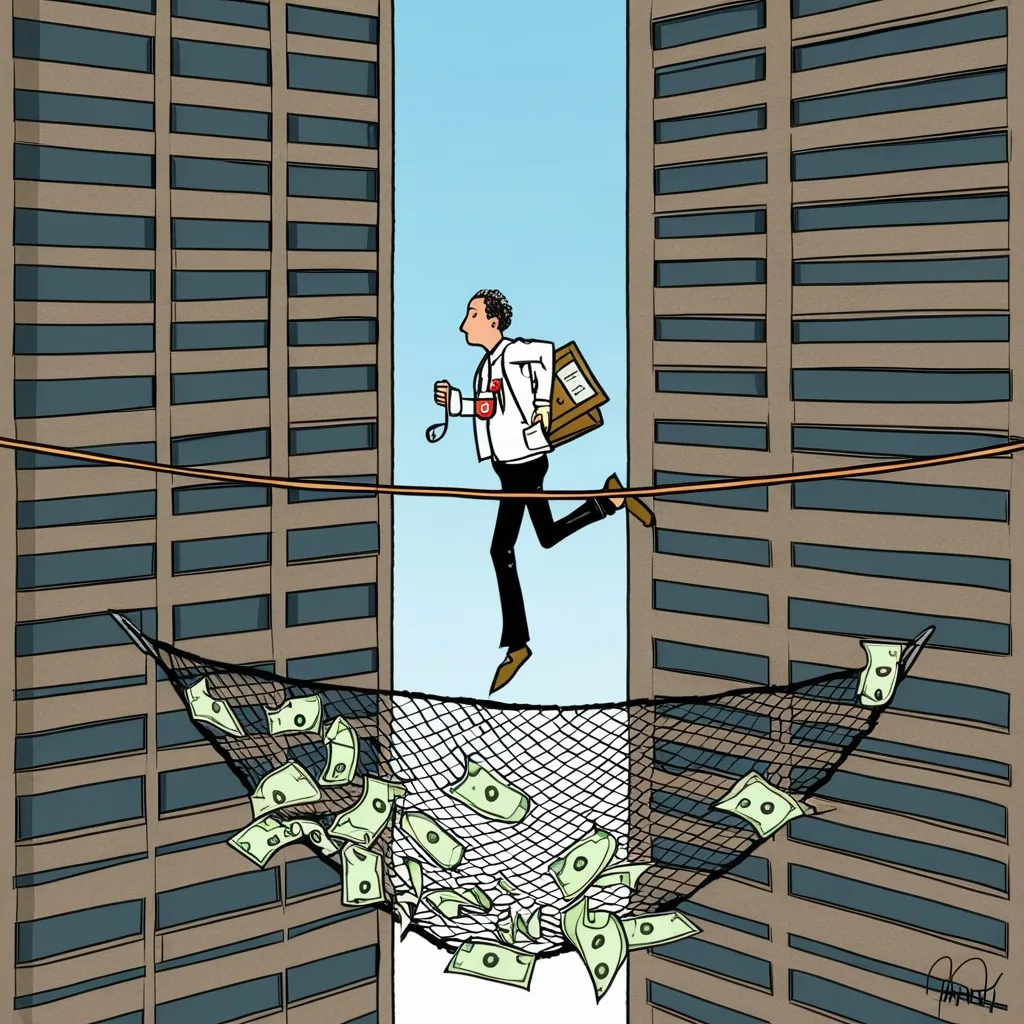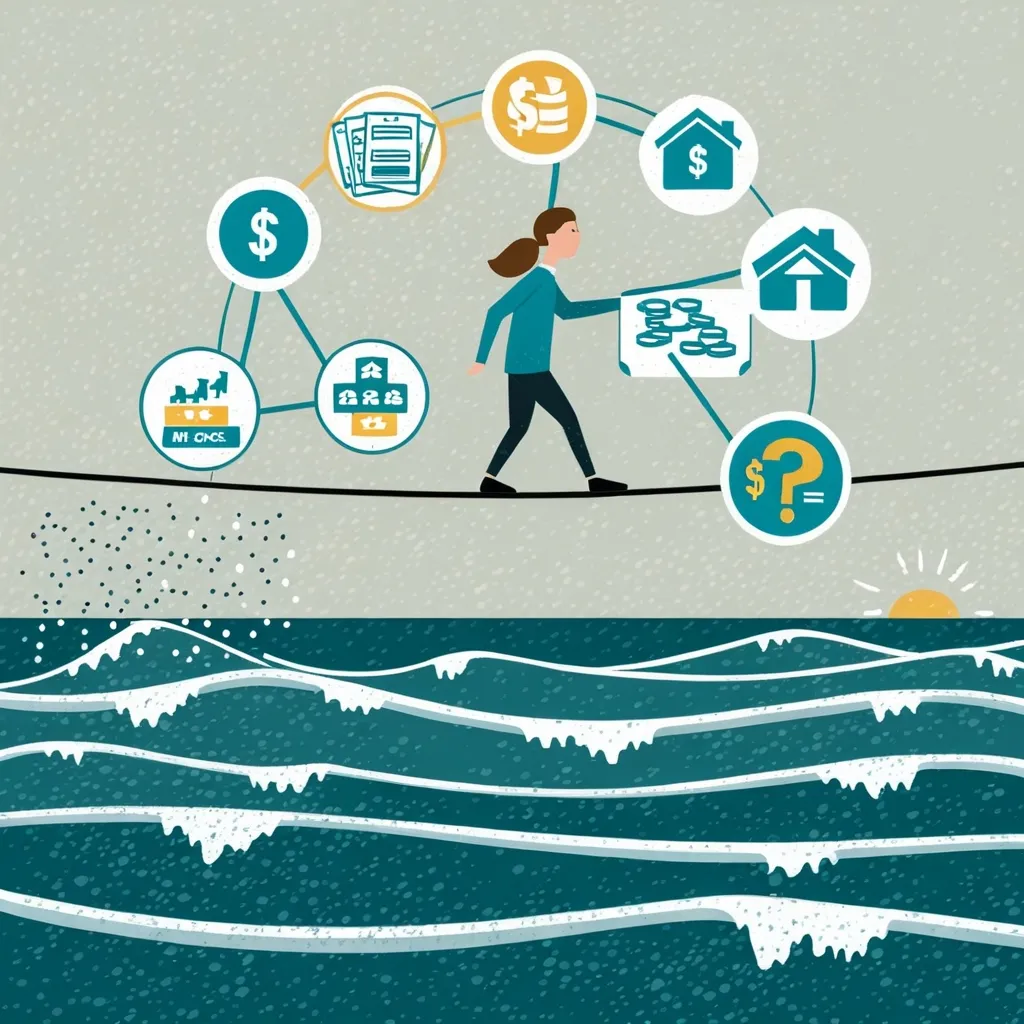The Hidden Dangers of Medical Debt: A Financial Tightrope Walk
Have you ever found yourself staring at a medical bill, feeling your stomach drop? You’re not alone. Medical debt is like a silent epidemic sweeping across the nation, leaving countless Americans teetering on the edge of financial ruin. It’s a topic that hits close to home for many of us, and it’s high time we shed some light on this often-overlooked crisis.
Let’s face it - healthcare costs in America are bonkers. It’s like trying to navigate a minefield blindfolded. Even with insurance, you’re never quite sure if you’re covered or if you’re about to step on a financial landmine. Half of us are struggling to keep up with healthcare costs, and that includes folks who thought they were safely insured. It’s a bit like carrying an umbrella in a hurricane - it might help a little, but you’re still going to get soaked.
Now, imagine getting hit with an unexpected $500 medical bill. For many of us, that’s not just a bump in the road - it’s a full-on car crash. We’re talking about having to choose between paying for groceries or paying off that bill. It’s a cruel game of financial Jenga, where one wrong move can send everything tumbling down.
And let’s not forget about our friends and family dealing with chronic illnesses or disabilities. They’re stuck on a never-ending medical bill treadmill, watching the debt pile up faster than they can pay it off. It’s like trying to bail out a sinking ship with a teaspoon - exhausting and seemingly futile.
But here’s where it gets really messed up - medical debt doesn’t play fair. It hits some communities harder than others, particularly Black Americans and those with lower incomes. It’s like the healthcare system is playing favorites, and if you’re not on the VIP list, you’re in for a rough ride.
The fallout from medical debt is no joke. People are selling their stuff, emptying their savings accounts, and even skipping meals just to keep up with the bills. It’s like being stuck in a bad video game where the only power-ups are “Sell Your Car” or “Skip Dinner.” And the worst part? This financial stress can actually make you sicker, creating a nasty feedback loop of debt and illness.
Now, you might think, “Well, I’ll just avoid going to the doctor.” But that’s like trying to fix a leaky roof by moving to the basement. Sure, you might dodge some bills in the short term, but you’re setting yourself up for a world of hurt down the line. Ignoring health issues doesn’t make them go away - it just gives them time to throw a rager in your body.
Even if you’ve got insurance, you’re not out of the woods. High deductibles, coverage disputes, and sneaky “out-of-network” charges can still leave you with a bill that’ll make your eyes water. It’s like playing a game of healthcare roulette - you never know where the ball’s going to land.
And don’t get me started on private equity firms muscling in on healthcare. They’re like the house in a casino - they always win, and it’s the patients who end up paying the price. Their aggressive strategies can lead to facility closures and care disruptions, leaving communities high and dry when it comes to healthcare options.
So, what’s the solution? Well, it’s not simple, but it starts with making healthcare more affordable and accessible. We need to expand coverage, bring down out-of-pocket costs, and put a leash on those predatory billing practices. It’s like trying to turn a cargo ship - it’s going to take time and effort, but it’s necessary if we want to avoid crashing into an iceberg.
One interesting idea is to remove medical bills from credit reports. It’s like giving people a clean slate, a chance to rebuild their financial lives without the shadow of medical debt looming over them. This could be especially helpful for communities that have been hit hardest by medical debt.
At the end of the day, medical debt is more than just a personal problem - it’s a societal issue that affects all of us. It’s like a game of financial musical chairs, where the music could stop for any of us at any time. We need to work together to create a healthcare system that doesn’t force people to choose between their health and their financial stability.
So, next time you hear someone talking about medical debt, pay attention. It’s not just about numbers on a page - it’s about real people facing real struggles. And who knows? The next person facing a mountain of medical bills could be you, your friend, or your family member. It’s time we started treating healthcare like a basic right, not a luxury item with a price tag that could bankrupt you.
Remember, nobody should have to choose between their health and their financial future. It’s time we started looking out for each other and pushing for changes that make healthcare accessible and affordable for everyone. After all, a healthier society is a happier, more productive society. And isn’t that something worth fighting for?
In the meantime, if you’re dealing with medical debt, know that you’re not alone. There are resources out there to help, from financial assistance programs to patient advocacy groups. Don’t be afraid to reach out and ask for help. Sometimes, just knowing you’re not facing this battle alone can make all the difference.
So, let’s keep talking about medical debt. Let’s bring it out of the shadows and into the light. Because the more we understand about this issue, the better equipped we’ll be to fight it. And who knows? Maybe one day, we’ll look back on medical debt as a relic of the past, wondering how we ever let things get so out of hand.
Until then, stay healthy, stay informed, and keep fighting for a healthcare system that works for everyone - not just those who can afford it. Because at the end of the day, we’re all in this together. And together, we can build a future where medical debt is nothing more than a bad memory.






